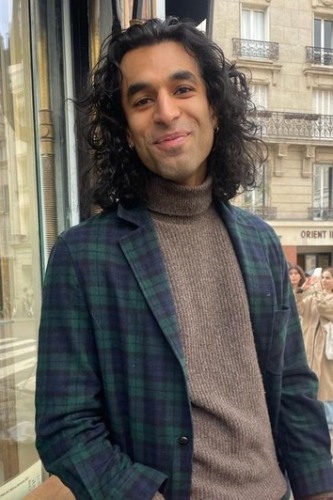
Siraj Ahmed Sindhu
Biography
Siraj Ahmed Sindhu is a seventh year PhD candidate focused on political theory and the history of philosophy. His research interests span democratic theory, postcolonial and anticolonial thought, Black political thought, and the traditions of republicanism and socialism. He received his BA, magna cum laude, from Amherst College in 2017, with an honors thesis on the status of nature and animals in Marx. Before coming to Brown, he worked in nonprofit legal services and DV/SA primary prevention in rural Alaska.
Job Market Paper Title
Thinking Democratic Virtue with James Baldwin
Job Market Paper Abstract
In this talk I offer a new perspective on contemporary democratic crises by returning to the work of writer and civil rights leader James Baldwin. I argue that although Baldwin’s thought was a response to a specific context of political division—the racial conflict between whites and blacks during the height of the US Civil Rights era—it has relevance for other periods of political division and democratic breakdown, including our own. This is because Baldwin’s writings contain a theory of how genuine multiracial democracy can overcome historically embedded political divisions and the forms of conflict they engender. For Baldwin, the success of American democracy would require what political theorists call democratic civic virtues: a set of habits or qualities of citizens that helps enable the sustenance of democracy. I find in Baldwin’s writings a number of democratic virtues, including a historical sensibility and a receptivity to new desires and pleasures. On one hand, Baldwin thought white Americans would need to take responsibility for eradicating the unjust inequalities that had developed as a result of slavery and its legacies; on the other hand, he thought they would need to be drawn into a desire for an egalitarian shared world, by cultivating new civic pleasures (or "positive affects”) that could outweigh or counteract the losses and fears (or “negative affects") that would attend their loss of dominance. Putting Baldwin in conversation with other democratic theorists such as Hannah Arendt, I further conceptualize these democratic virtues, and I argue for their relevance to contemporary political life. Today’s democratic breakdowns call for structural transformations to address racial and class inequalities, and we will stand a better chance of sustaining a democratic form of life, I argue, if we cultivate democratic virtues that support our responsiveness to past and ongoing injustices.